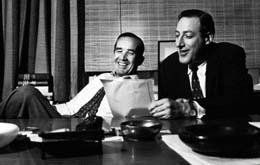The last day of April

Here in Sweden the last day of April is a big deal and this year it is even bigger because the King turned 60 today. The most important thing about the 30th of April in Uppsala is, however, the student festivities. The day begins oatmeal and champagne. Then continues with the students paddling their homemade rafts down the river Fyris - which ends when they brave the "rapids" at the Iceland bridge. A herring lunch is in order and then at 3 o'clock all the students put on their little white hats outside the main University library and then go and drink some more. In the evening the bonfires are lit and spring songs sung. On and on with a considerable amount of alcohol to make sure a good time is had by all. If you don't understand this don't worry, no one else does either - it is some sort of paga ritual to welcome spring.
I have been reading, as usual, but no real books of note - except Margaret Drabble's "The Seven Sisters". I actually read it in the Swedish translation, my classical daughter had borrowed it from the library and suggested I read it. I enjoyed it so much that when I went to the library to return it I checked out Drabble's latest book "The Red Queen". Anyhow, "The Seven Sisters", hit home in a lot of ways, a middle-aged woman alone visiting the health club. It was about daring to join in and make things happen. Serious, funny, and thoughtprovoking.
The other books that I have gone through are my 10 crown find - it was just barely worth the money, "A good woman" by Lisa Appignanesi. I was in Umeå for two days and bought a reserve book - a debut novel by Alex Barclay called the "Darkhouse". It was a readable thriller in which hawks as well as bow and arrows figure into a twisted story. Another library book was Joseph Kanon's "Alibi". I really didn't like it. I don't like stories where people so stupid things because they think they are right or have to cover their stupid tracks. I guess it might fit the definition of tragedy - "serious incidents in which protagonists undergo a change from happiness to suffering, often involving the death of others as well as the main characters, and resulting from both the protagonists' actions and the inescapable limits of the human condition." But the tragedy for the main character, Adam Miller, was mostly that he could not distinquish between evil and "getting by". He can justify murdering someone if that person has done something reprehensible. Sometimes walking away is better for all.




